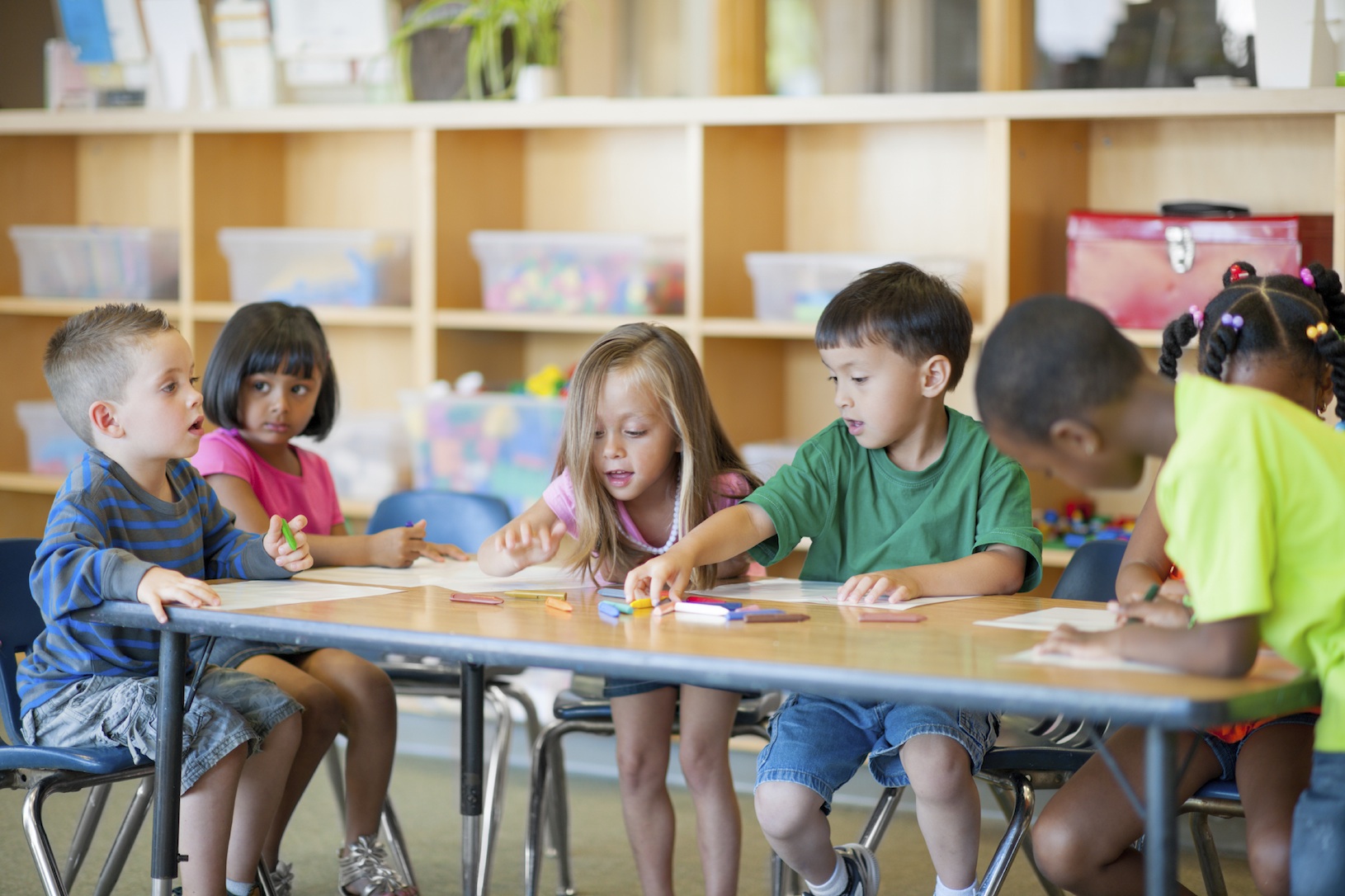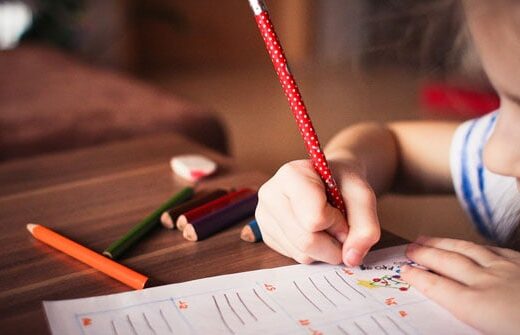Most engaging science experiments that spark curiosity in Grade School students
Wiki Article
The Significance of Interactive Tasks in Elementary School Education
Interactive activities play an important duty in quality school education and learning. They engage trainees and improve finding out end results. Through group projects and hands-on experiments, students experience the product in a practical way. This strategy accommodates varied understanding designs and advertises crucial abilities. Nonetheless, the advantages expand beyond academics. Checking out the much deeper influence of these tasks reveals their relevance fit young learners' futures. What transformations take place when pupils proactively take part?Enhancing Interaction Via Interactive Discovering
Conventional training techniques have their benefits, interactive knowing considerably boosts trainee involvement in grade institution education and learning. This technique motivates energetic participation, enabling trainees to immerse themselves in the learning procedure. By utilizing team tasks, hands-on experiments, and technology-driven resources, instructors produce a setting where trainees feel more linked to the product.Interactive learning promotes partnership amongst peers, cultivating interaction skills and synergy. It also deals with diverse discovering designs, making certain that visual, auditory, and kinesthetic learners can all prosper. Moreover, pupils are more probable to retain details when they actively take part, rather than passively receiving knowledge.
This vibrant approach not just makes learning pleasurable but also instills a sense of ownership in students concerning their instructional journey. As they engage with the content, their inquisitiveness and motivation to find out increase, laying a strong foundation for future academic success.
Developing Crucial Assuming Abilities
Interactive discovering not just improves engagement however additionally offers as a stimulant for developing vital assuming skills in grade school trainees. Through activities such as problem-based knowing, arguments, and hands-on experiments, students are motivated to analyze info, examine various point of views, and create reasoned final thoughts. These interactive experiences call for students to wonder about assumptions, leading them to believe even more deeply regarding numerous subjects.
Additionally, interactive tasks frequently existing real-world scenarios that test trainees to apply their knowledge creatively. By maneuvering through these challenges, they find out to determine pertinent info and make notified decisions. This process cultivates not only specific critical thinking but likewise urges students to verbalize their assumed procedures, boosting their capacity to communicate efficiently. As a result, interactive discovering atmospheres cultivate a generation of vital thinkers who are better prepared to deal with complex troubles in their future academic and specialist undertakings.
Cultivating Cooperation Among Peers
Cultivating collaboration among peers is necessary in elementary school education, as it boosts synergy and interaction abilities. Involving in team activities assists students develop trust fund and regard for one another, preparing for effective partnership. Furthermore, analytic with each other enables pupils to gain from each other and develop a collective approach to obstacles.Team Effort and Communication Abilities
Reliable synergy and communication skills are crucial parts of an effective elementary school education. Taking part in interactive activities urges trainees to team up, share ideas, and resolve issues together. Such experiences promote the growth of important interaction capabilities, permitting youngsters to express their thoughts clearly and pay attention actively to others. Via team effort, trainees find out to value varied viewpoints, promoting a sense of area and shared responsibility. Structured team jobs, whether in academics or innovative tasks, boost peer communications, instructing children exactly how to bargain roles and deal with disputes. Subsequently, these abilities not just contribute to a positive class atmosphere but also prepare pupils for future joint ventures in college and the work environment. On the whole, team effort and interaction are foundational to holistic advancement in elementary school.Structure Depend On and Respect
Structure count on and regard amongst peers serves as a cornerstone for successful collaboration in quality college environments. When trainees really feel valued and respected by their classmates, they are extra most likely to involve proactively in team tasks. Interactive tasks, such as team tasks and participating video games, offer chances for students to gain from each other, promoting a sense of neighborhood. This setting urges open interaction, enabling students to express their concepts and opinions without fear of judgment. As depend on develops, pupils become a lot more happy to share duties and support each various other's discovering. Eventually, cultivating an atmosphere of depend on and regard improves not only academic outcomes but additionally social advancement, outfitting trainees with necessary social skills for their future undertakings.Problem-Solving Together
Collective problem-solving involves pupils in crucial thinking and team effort, essential abilities for their academic and personal development. When students interact to take on challenges, they discover to interact properly, regard varied perspectives, and take advantage of each various other's toughness. This procedure improves their ability to analyze problems from numerous angles and create innovative solutions. Group activities, such as science experiments or math difficulties, promote energetic participation and foster a sense of community. As students collaborate, they likewise build social abilities, discovering to negotiate and jeopardize, which are essential for future interactions. Ultimately, analytical with each other grows a helpful her latest blog knowing setting, encouraging trainees to take possession of their education and learning while preparing them for joint undertakings past the classroom.Urging Creativity and Technology
Motivating imagination and development in elementary school education and learning can be substantially enhanced with hands-on knowing experiences. These activities allow trainees to involve directly with products and ideas, fostering creative thinking. Furthermore, collective group projects can boost varied ideas and options, additionally supporting an imaginative atmosphere.Hands-On Learning Knowledge
A wide range of hands-on knowing experiences significantly enhances imagination and innovation in elementary school education and learning. Engaging pupils in useful activities enables them to apply academic understanding in real-world contexts, cultivating much deeper understanding. By manipulating devices and materials, youngsters create crucial analytical abilities and discover to assume outside the box. These experiences inspire curiosity and motivate pupils to explore their passions better. Additionally, hands-on activities can bridge numerous subjects, linking science, art, and mathematics in purposeful methods. This interdisciplinary method urges trainees to see links and think creatively. Eventually, hands-on knowing experiences support a generation of trendsetters, furnishing them with the skills and self-confidence required to take on future difficulties and contribute to culture in special methods.Collaborative Group Projects
Hands-on knowing experiences naturally bring about the incorporation of collective team tasks, which play an essential role in cultivating creativity and advancement in quality institution education. These projects motivate students to interact, sharing perspectives and concepts, which enhances analytical skills and critical reasoning. Via collaboration, students discover to communicate properly and regard varied viewpoints, necessary skills for their future. Additionally, team projects provide opportunities for students to experiment with various functions, enhancing their adaptability and self-confidence. Engaging in this participating setting allows them to discover their creativity, pushing the borders of typical knowing. Ultimately, collective team jobs not just enhance the academic experience but also prepare trainees for a fantastic read real-world obstacles that call for teamwork and innovative thinking.Building Self-confidence and Self-reliance
As students take part in interactive activities, they typically discover possibilities to develop self-confidence and self-reliance. These activities, whether they involve hands-on projects, role-playing, or problem-solving jobs, motivate students Click Here to take initiative and reveal their ideas freely. By getting involved in such experiences, students discover to trust their abilities and make choices without depending exclusively on support from instructors or peers.Moreover, interactive activities cultivate a feeling of ownership over discovering. When pupils deal with difficulties collaboratively or individually, they establish essential thinking skills and strength. This process not just improves their understanding of the subject yet also equips them to take threats in their learning trip.
As they navigate various interactive scenarios, trainees gradually shed their insecurity, paving the way for boosted self-worth - Grade School. Inevitably, these activities play a vital role in supporting independent and positive students, outfitted to face future scholastic and personal obstacles
Developing a Favorable Classroom Atmosphere
While cultivating a favorable class environment is vital for effective learning, it needs intentional initiative from instructors to produce a room where trainees feel safe, highly regarded, and engaged. A positive atmosphere urges cooperation, allowing pupils to reveal themselves without worry of judgment.Educators can attain this by developing clear expectations, promoting shared regard, and acknowledging specific payments. Including interactive tasks additionally enhances interaction, making discovering more enjoyable and dynamic.
In addition, a caring environment supports social-emotional development, as trainees learn to browse partnerships and settle disputes. Teachers play a crucial duty in modeling positive behavior and enhancing a society of generosity and inclusivity.
Regularly Asked Inquiries

Just How Can Moms And Dads Support Interactive Knowing at Home?
Parents can support interactive discovering at home by giving appealing materials, encouraging hands-on jobs, including academic games, promoting conversations, and developing a nurturing atmosphere that advertises interest and expedition in their youngsters's learning experiences. (Kindergarten)What Types of Interactive Tasks Are The Majority Of Effective?
Hands-on tasks, joint video games, role-playing scenarios, and academic innovation applications are among the most reliable interactive activities. These engage students, improve vital thinking abilities, and advertise synergy, eventually cultivating a much deeper understanding of different subjects.How Do Interactive Tasks Deal With Various Learning Styles?
Interactive activities involve aesthetic, auditory, and kinesthetic students by including varied techniques. These tasks promote understanding via hands-on experiences, joint conversations, and aesthetic aids, enabling trainees to absorb information according to their favored discovering design.What Are the Expenses Linked With Implementing Interactive Tasks?

Carrying out interactive tasks sustains prices such as materials, training for educators, innovation upgrades, and prospective center adjustments. Budget plan constraints can additionally influence the frequency and variety of tasks provided to students in academic settings.
How Can Educators Examine the Influence of Interactive Discovering?
Teachers can examine the impact of interactive understanding via observations, trainee feedback, efficiency metrics, and relative evaluation of test scores prior to and after implementation, guaranteeing a detailed understanding of interaction and understanding retention enhancements.Through tasks such as problem-based learning, discussions, and hands-on experiments, pupils are encouraged to examine details, assess various point of views, and develop reasoned conclusions. Interactive tasks commonly present real-world circumstances that test students to apply their understanding artistically. Involving in interactive tasks urges students to work together, share ideas, and fix problems with each other. Interactive activities, such as team projects and cooperative video games, give chances for pupils to learn from one an additional, cultivating a sense of neighborhood. As students engage in interactive activities, they often discover opportunities to develop self-confidence and freedom.
Report this wiki page